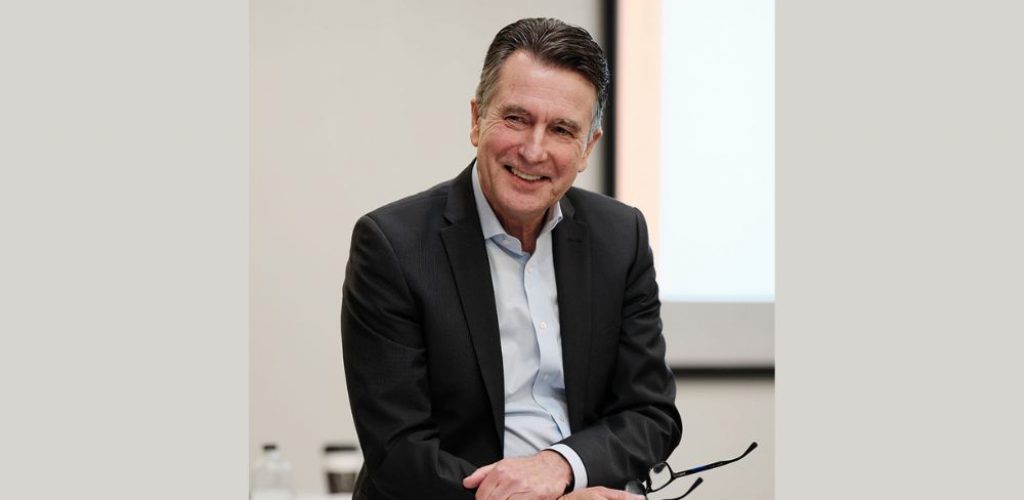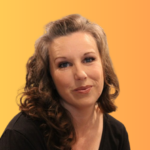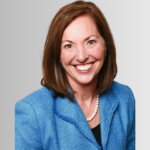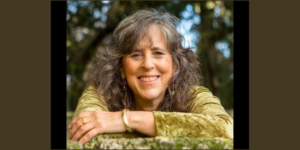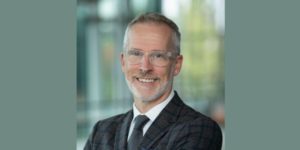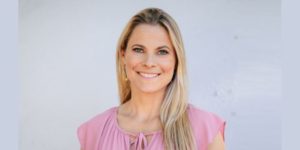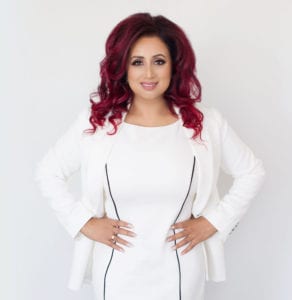Raj Girn: This week’s leadership- and advocacy-themed episode is entitled How to Lead Self, Others and Organizations Through Holistic Leadership So Everyone Wins. A tall order but one my guest today has mastered and we get the privilege of learning from him.
His name is Reiner Lomb. He is an executive coach and the founder of Boomerang Coach, a firm that specializes in career development, innovation, and transformational change.
Here is our conversation:
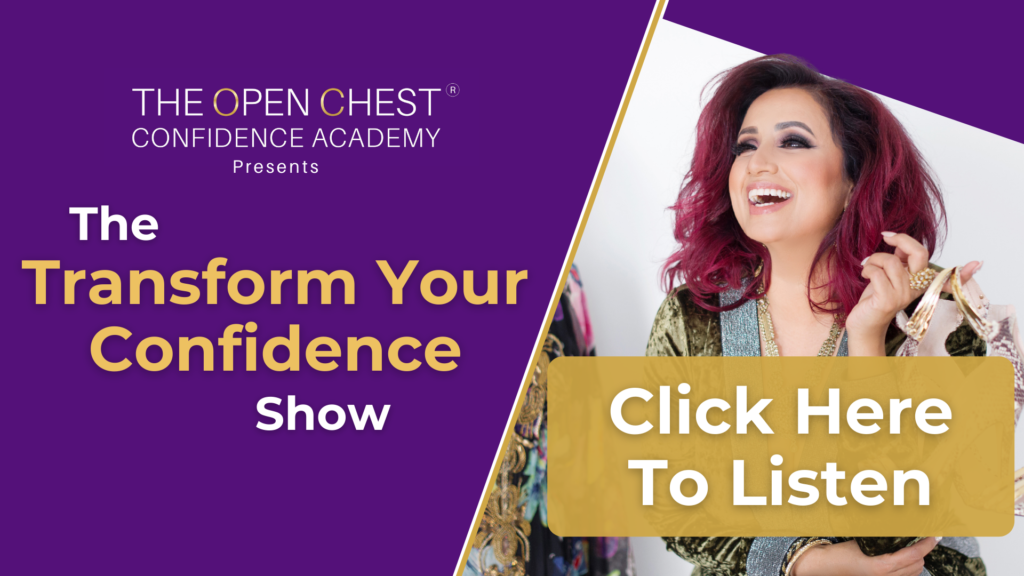
Raj Girn: Welcome to the show, Reiner. I’m so happy to have you on to pick your brain and best experience. What a treat for everyone watching, listening and reading this.
Reiner Lomb: It’s a pleasure to be with you Raj.
Oh, my gosh. I’m so happy. Let me just fill everyone in a little bit about your journey, Reiner. Just a small snippet because there is a lot to talk about.
Reiner has a 30-year career span and has predominantly been in the technology space, with 20 of his years at Hewlett-Packard, where he helped grow HP software into a multi-billion dollar organization.
While at HP, Reiner discovered his passion and talent in leadership development, where he trained leaders in how to scale from leading oneself to leading others, to then leading an entire organization. The perfect person for this discussion.
He has also written a book that released in spring this year called ‘ASPIRE: Seven Essential Emotions for Leading Positive Change, No Matter Where You Are.‘ Lots to talk about. Let’s dive right in.
Reiner, clearly, you made a fundamental decision to lead a mission driven life after your tenure at HP. Before we get into talking about your firm and the book, I want to ask you why. What is it that you believe in? Cultivating leadership skills is a game changer in building successful business ecosystems today. Why leadership cultivation? Tell us that.
Well, that’s a wonderful question. That’s at the heart of my passion. There are many dimensions to it. But I would say I would say one is really more focused on self-actualization. And there’s this one, the why are we here? What’s the difference we want to make while we’re here on earth? It goes a little bit into, I would say, thinking beyond ourself.
In the early part of my career, I was very much focused on being the best I can be in terms of self-actualization, the things I was learning, I was studying, the careers I had and so on. And it was, I’d say, exceeded my own expectations in that I could never have dreamed of the things I was able to accomplish or to help build.
But in this process, I also, and maybe it had to do with age, maybe it had to do with seeing and looking at the world and myself differently, saying that there must be something else. Why I’m here. Success alone that is measured in business and revenue and how much you can grow and so on was not enough anymore for me.
Also discovering the many challenges we have in the world, which we have huge challenges. We have climate change going on. We have a social, economic, racial divide. We have wars going on, pandemics and so on. And I realized that it was what I had learned and that I have a responsibility to make a difference.
I grew up in Germany, in a divided country. I grew up with the heritage of the Holocaust. I inherited that as I was born after the war. And rather than getting stuck in guilt, I transferred it and transformed it into a responsibility.
I would say I really came to it was almost a spiritual realization. I wanted to make a difference and to create a difference. And I saw it as a journey. That is, as long as I live and I’m healthy, I want to continue on. So, I turned it into a mission to mobilize leaders to help create a more sustainable future for all.
“I wanted to make a difference and to create a difference. And I saw it as a journey. That is, as long as I live and I’m healthy, I want to continue on. So, I turned it into a mission to mobilize leaders to help create a more sustainable future for all.” ~Reiner Lomb
Everything that you just said really spoke to me on so many levels and it gives everybody that’s here with us today some context around why this is such an important mission for you.
So let me tap a little bit into some of the things that are speaking to me and coming up for me. We live in a world today, and you’ve already alluded to this, where the work environment has shifted because of all the things that are going on from a workplace centric culture. You know, the type that we know was created by the Industrial Revolution to focus on the whole rather than the individual, to now being a workforce centric culture, where recognizing individual identity factors in things like your age, gender, economic and social background, sexual orientation, among others, is paramount today to ensure that the workplace is being inclusive.
As a leadership coach, how has this changed how leaders need to show up today versus when the whole Industrial Revolution created the stratified infrastructure that we’re all breaking out of right now?
Well, this is a very good question. And that’s, again, two levels. One is the behaviors of a leader. What do other see of the leader? And the other is what is the inner condition of the leader, the inner work the leader has to do? I have been a leader for many years. And now I’m coaching and I’m developing leaders. Why is the leader even leading?
That needs to be clear to the leader and needs to be also expressed that people want to know why. Why is he or she leading me? Why should I follow that person? And you mentioned diversity, and I’m glad that you added so many different dimensions of diversity, because at some point in time, diversity was very binary. We focused on color or ethnicity and so on. But we learned there’s much more diversity and there’s probably more to learn about diversity.
Just opened that door, haven’t we, Reiner?
I think so. I believe so. I have been always very interested in the inner life of people. I’ve been like a good listener and empathetic listener. So, it’s always a little bit a sense of there is more? And I have been very curious about it.
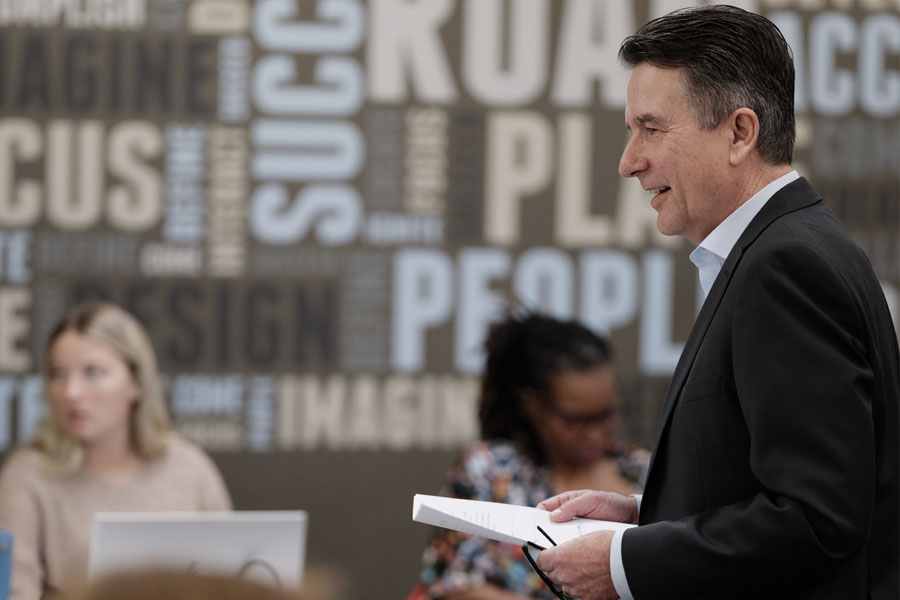
Some people like to go in space and they want to go to mass. And yes, that is interesting, exciting. And I would watch it, you know, the moon landing and all those things. But it didn’t excite me as much as the inner universe, the inner discovery that it’s also written about it. And then I find it so fascinating. And in my leadership, I have to say, is I have studied a lot of different disciplines.
I have an electrical engineering degree, a company. I’m a computer scientist. I am a businessman and entrepreneur. I’ve studied it. I have an MBA and all these things. But nothing has been as powerful as understanding why people behave the way they behave, what keeps them from behaving the way they like to behave or the leaders want them to behave to achieve something greater.
“Nothing has been as powerful as understanding why people behave the way they behave, what keeps them from behaving the way they like to behave or the leaders want them to behave to achieve something greater.” ~Reiner Lomb
And what shifts need to occur on the inner side? It’s a lot of the inner work. I was always fascinated by it and that journey has not ended. Every day I think there’s so much more to discover.
Let’s tap into some of what you do at Boomerang Coach. How does your company lean into these nuances, some of what you talked about, some of the things that I prefaced the question with that leaders need to cater to in its curriculum or your coaching parameters that give everyone a sense of what Boomerang Coach actually is and who it’s for?
These are good question. It’s an executive coaching firm. It’s so much more, but because that’s what everybody understands, that’s the established term in the industry for that. But there are three domains why people come to me. If I take it at a higher level, one is finding purpose and living the purpose.
So initially in my work when I started, when I left the corporate world and I positioned into a coaching, a lot of that work was focused. My first book that I published many years ago was focused on helping people find that purpose, live their purpose, and live that passion with joy and so on, and make a difference in the world.
But the other thing that came up then is thinking, now you helped me to be on the right path. I’m more aligned, but I’m still striving to be successful, which comes to the area that you have chosen. You want to make a difference. How can I create and lead to change successfully? And so the second part that people come to me is really how can I lead positive change? How can I lead aspirational change? Including even having a vision, an aspirational vision. And then what do I do to make it happen?
That was the second area. The third area, and we all experienced this during the pandemic, is a crisis. So, for the last decade or more it’s really to be resilient. Let’s say we have a coaching agreement, and they have a specific purpose for that, a goal, and then we break it down to goals and metrics and really what they want to achieve.
But one day they come and say, we cannot work on it. Today I have a challenge. I lost my job or I lost my team. I have to reorganize. Or I lost my funding or whatever. A pandemic started and I’m not sure if I can keep the business open. There are setbacks in life. There is adversity so people should area beside finding and living my purpose. How to lead change in that area that I care about in a greater sense? And how do I lead successfully and then to certain areas? What do I have to learn to be resilient? But not just me, also the people that I’m leading the team organization, even including my own family or circle of friends or community.
Absolutely. Do people get to work with you one-on-one? Do you offer courses, masterminds? How do people work with you?
Yeah, there is one-on-one executive coaching. It’s very individualized and customized. I’m the friend that listens and helps to create shifts for the person to see new possibilities and help them pursue. So executive coaching could be in-person or virtually. Very often nowadays virtually and they work with me typically over maybe a six-to-12-month period.
I have many law firm clients that have worked with me for many years and they have climbed to whatever level and they’re like, I’d like to hire crowns and developing and having a greater impact in the world. And then the second area is I speak quite a bit, but I also facilitate. Many of the leaders I work with, but it could also be somebody I’ve not worked with, ask me, can you do more transformational work, help to develop my team, take them to a different level?
Sometimes it’s innovation. Sometimes it’s about some kind of transformational change. Right now, in that time, whatever industry somebody works in, education, health care or whatever, ask then can you help my whole team to take them to a new level to deal with this situation and be the other? The other thing I do quite a bit, and that’s a parallel stream always, I write and publish and that is mainly to help more people, to scale better to reach more people.
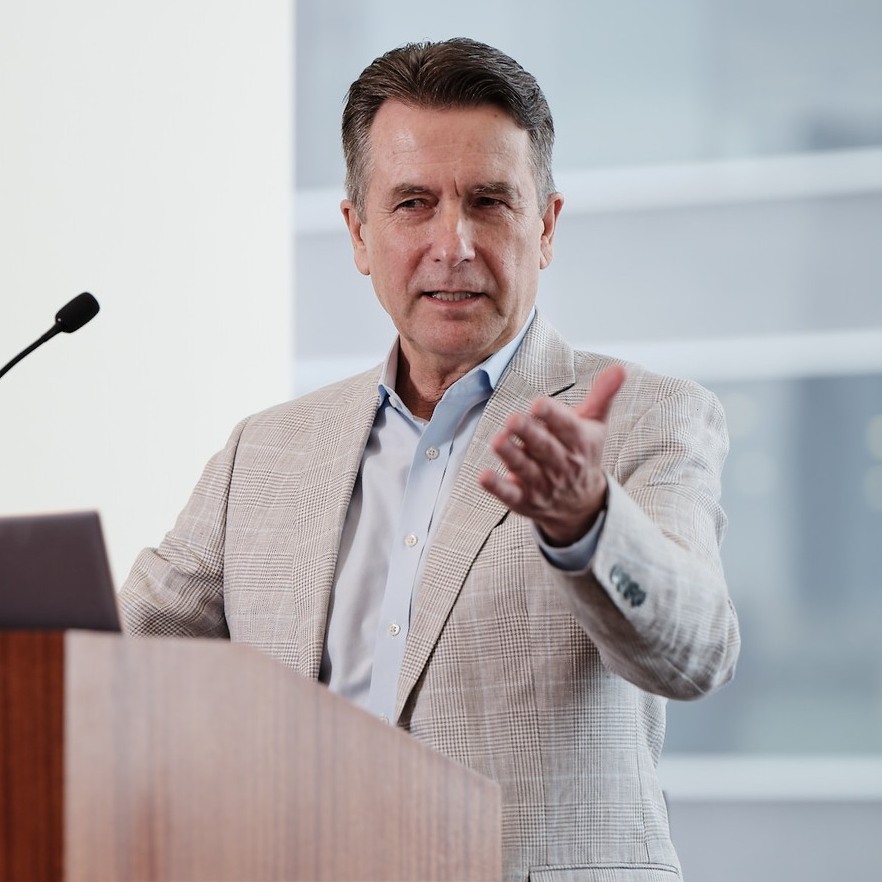
Absolutely. It’s the accessibility component. I get that. Because not everyone can work with you, but everyone can access where you write. This is why your book, I’m assuming, was put out there.
But before we get into the book, for those people just joining us, I want you to encapsulate what’s the big picture mission for Boomerang Coach.
The big mission, which has been stable, surprisingly, for so many years. That’s how you know a mission is good, you get up every morning and you’re fired up. And even if things are hard, it’s really mobilizing leaders and people to lead change in the area they care about. And since the world is a system, no matter which part of society I improve, it has an impact on other parts of society.
I have learned that in studying system design and other things. If somebody works on climate change or somebody works on social justice or somebody works on their family context or on their startup or in a midsize or large company or in a community. I work a lot with indigenous leaders and indigenous communities around the country.
And no matter where it involves or what society. And so that is my mission. Mobilize people and help them succeed on that. The change they want to create, an aspirational change that they aspire to create.
It’s really interesting because you have a diverse portfolio of the types of leaders that you work with. Are there nuances in your technique perhaps or in maybe the types of leadership skills that you coach these different diverse leaders that would be a good idea for us to talk about here?
Because there’s a lot of different types of people that come in and listen, watch and read this show and I just want to be able to reach as many of them as possible in terms of really showcasing that your coaching is very diverse in terms of the types of leaders that you work with. So, talk to me a little bit about that because oftentimes and I guess where this is coming from is that when you go to the internet or to social media, you’ll have a coach and they’ll say, I only do this or a coach that says I only work with this person.
And then you have people like yourself and like me who have decades of experience in the space that we’re in and have the capacity to work on many levels with many different types of people towards a variety of different goals. And oftentimes, people find people like you and me a little bit more complicated to understand what we actually accomplish.
So, I want to ask you that you talked about Indigenous, you talked about corporate leaders. You talked about entrepreneurial leaders. Is there something you do that’s different with each of them so that you can actually lean into what psychologically works better for them to receive the knowledge and the experience that you’re bringing to them to accomplish their specific goals? What a big question.
It is a big question, but it’s a very important question. And the reason why I am saying this is there’s not one size fits all. There’s not one in coaching. When I started coaching, I started coaching while I was still in my corporate leadership roles. I did it in parallel. I started to develop this. I gave leadership trainings within the company I was working with because I was passionate about it, but also coaching leaders and also had my own business, started a race for many, many years.
But what I found, what people told me that came to me is the need for coaching was that they told me many of them had a coach and they had one methodology they were trained on and they would try to fit that to any problem, to every problem, basically. And they said it didn’t work. They didn’t really listen to what I needed.
The first part of engaging with somebody is really listening to what they need. You get to know what the person needs, who the person is, what they want to achieve in life and what and something is not working. And the potential client that wants to be coached could say that’s not a good fit. Or I would say it’s not a good fit.
Maybe that’s not in alignment. I say it quite a bit. I say no when I get an offer to coach in a corporation, but I don’t believe in the mission of the company. It would be a conflict for me. Like certain industries, let’s say the tobacco industry, unless they say we want to transform to a different service for the world or whatever or let’s say it’s the weapons industry. I don’t believe that this is a good solution for the world.
I’m not saying that people who believe in that, that they’re wrong. I’m just saying that’s my value system. But you know, I’ve been in the military and everything. I was drafted. It’s not that I’m ignorant about it, but I’m saying there’s certain requests that I say no to to make sure it’s a good fit. But then I really listen. I listen first. I ask questions to understand what is really needed.
So you asked what kind of kind of engagement are they? It’s either somebody is in a crisis, they hit the wall. Everybody hits at some point in time in life, the wall. So everybody needs it at some point in time. I have needed that kind of thing where I call on people that I admire and I call them and they were listening.
We all need a mentor right? We all need that.
That mentor, coach, friend, whatever you call it, but somebody who can listen to you. So it’s a crisis mode that’s a different type of coaching. Then if somebody comes and has already gone through some kind of reflection and says, I have done some reflection and I want to move up to the next level, maybe next level of goals, I want to have a greater impact. That’s an example.
Maybe I have been an integral contributor and I want to become a manager and leader of a team. Well, I have been a leader of a team, but now I’m thinking about having a greater impact. I have coached people from not leading any people to a handful to thousands of people over the multiple years.
Right.
But also, there’s a dimension that’s very important to mention. This is not only about the skills to let’s say you mentioned you lead the few people to hundreds to thousands, maybe more, even your impact. Some people are very inspired, like have high aspirations.
But it’s also why do you do it? So this element of coaching and consciousness. A lot of people that, and that’s the feedback they give me, and I asked them, you know, from time to time, what happened? What change happen? They say, I’m able now I feel more confident in creating transformation in other people’s lives, different scale. But I also transformed. I have become a different person. I feel differently if people respond differently to me and it typically goes across all relationships.
It’s not just a business transformation. It is a transformation in their marriage, in their family relationship to their kids. And that’s very important that this type of development doesn’t have any boundaries because if you become a different person in terms of how you show up emotionally and with your behaviors and also how you show up, and who you attract to you, that it has an impact on any part of your life no matter where you show up.
“If you become a different person in terms of how you show up emotionally and with your behaviors and also how you show up, and who you attract to you, that it has an impact on any part of your life no matter where you show up.” ~Reiner Lomb
Absolutely. I agree with you. So anyone that is intrigued and wants to know more about the things that you do and how potentially they could work with you, where shall we send them?
I have a website. reinerlomb.com. Very simple. And people can find all the information. They can contact me there.
Brilliant. Let’s talk about this latest book of yours. It’s called ‘Aspire Seven Essential Emotions for Leading Positive Change No Matter Where You Are.’ Tell me how this book factors into the mission of your company? Reiner let’s start there.
I talked earlier about mobilizing leaders and helping them, supporting them, teaching them, coaching them to become more effective leaders in creating the change in the area they want to create. And that obviously always starts with themselves in terms of their own behaviors but also with the goal that they become more effective in influencing others, leading or changing behaviors of others.
So leading means basically creating or getting a vision of an aspirational vision of something you deeply care about. So you imagine a future that is different from now that you aspire to alone or collectively as an organization or community. But also then how do you change behaviors of the people to make that that vision a reality? That always goes back to starting with your own leadership behavior.
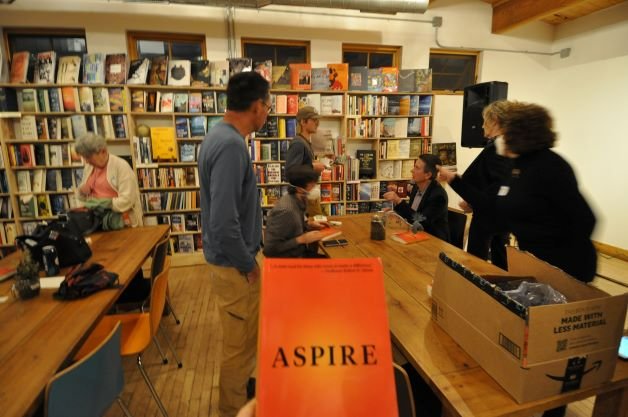
Now some of the many things that drive our behaviors, but one of the most powerful one that I found in my work and in my life, drivers of behaviors are emotions. There’s some experts say that more than 250 emotions and there’s a subset of those that are present that we feel at any given time. If we are not aware of that, very often it runs a little bit like a background Pokémon and it runs our behavior.
And then afterwards we shake our heads and say, “Why did I do this?” And it’s like an intangible force, like an invisible force that drives our behavior. So why did I dive into that? I discovered that over time… I’m also trained as an ideological coach many, many years ago. Which one of the dimensions is a more holistic approach to coaching. And one of the dimensions is emotions. Emotions allow us to see something or not. Emotions can be a barrier for desired behavior, or they can be a driver of a desired behavior.
“Emotions allow us to see something or not. Emotions can be a barrier for desired behavior, or they can be a driver of a desired behavior.” ~Reiner Lomb
I studied it. I practice it for most of my life, I have to say. But more consciously, for the last 10 to 15 years, really deep. And I had the greatest success in creating a change in behavior, in enabling leaders to become better leaders, more conscious leaders, more influential leaders when I coached in the emotional space and its simple.
It’s as simple as saying, am I aware of my emotions that drive my behavior? And is that useful? It is emotion right now. For what? What do I need to do? Why is it not useful? And if it’s not useful, what is the emotion that I need to feel that helps it, that empowers the behavior that I need right now?
I love that. What I love about what you’re saying is oftentimes, when people think about people in a position of power, empowerment, leadership, whatever you want to call it, all of the above people feel that those people are in those positions because they put their emotions on the back burner, so to speak, and they deal more in the space of intellectuality. What you’re saying here, is that’s it’s the reverse.
That’s the case more than anything else, is that these people have heightened emotional intelligence, which allows them to make the decisions that are right for any given moment. Now, I don’t want to put words in your mouth, but that’s what I’m hearing you say here.
That’s a big part of it. It’s kind of you comparing our brain landscape with the computer and let’s say we’re still computers, that the rational part of our brain was the neocortex, the frontal part and then the emotional part that is much older that came through evolution that helps us to make sense of the environment and then learned behavior that is useful in this. Let’s say, for example, fear in the olden days of the tiger. And then the fear drives the behavior of either running or fighting something or freezing. It still applies.
But then making that a visible fight for yourself and say, is that fear right now useful? Is it even right that I have fear? Because maybe fear is coming up in a business meeting? There’s no justification for it. It’s made up in our mind that because the boss raised his or her eyebrow and I’m saying now I’m in danger. And I go into this fight freeze or flight mode, and that happens all the time, every day and millions of times around the world.
Let’s tap a little bit into your book, ‘ASPIRE: Seven Essential Emotions for Leading Positive Change, No Matter Where You Are.‘ What are these seven essential emotions? Can you encapsulate them a little bit for us so we keep it top line and we don’t lose people?
I would like to put it first in blocks of three and it’s like a, like a pyramid from the bottom up because they build on each other, they even interrelate. The first three build the foundation of the pyramid: empathy, compassion and interest. Empathy drives caring. Compassion includes and builds on empathy. And it’s the commitment to acting on that caring to commit to serving the needs of that person.
Okay.
Now interest adds then the component of wanting and trying and feeling the need to understand the situation, understanding the needs. I mean, my interest in you, understanding what does Raj need right now from me? I’m trying to listen with interest to understand where you’re going with this. How can I best serve the need that you have or your audience, your listeners? But for a leader in a company, it’s understanding my stakeholders and understanding the systems and solutions that meet the needs of those stakeholders. It’s that simple.
But it sounds very abstract. I can give examples later. These are the first three that help you to empathize, care and understand better. What are you dealing with and who are you dealing with? But on top of those three is then . . . So now with that knowledge, let’s say I’m dissatisfied with the status quo of what I’m learning. The needs are not met of my stakeholders.
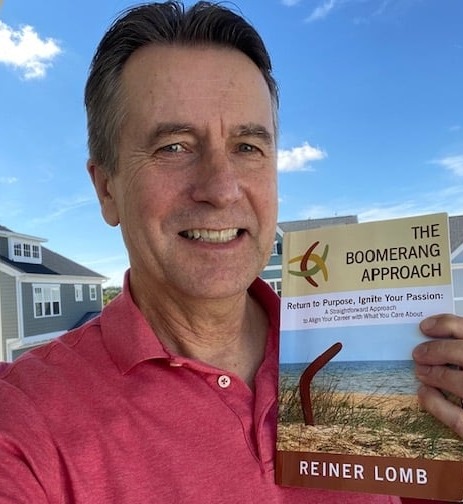
What is the vision that I need to have or want to have in order to create a perfect world? Like I’m talking a little bit idealistic here just to make the point that requires optimism. So optimism, it requires also inspiration, which mobilizes people to help pursue that vision, to make it a reality. And on top of that, it requires coordinating effective actions towards that vision, setting goals and coordinating effective actions to move towards that vision.
So to meet the needs of the people, the stakeholders, and that requires inspiration. If you want to have a sustained mobilization of people in any circumstance, company, community in the whole country and the whole world on an issue, you need to inspire them. You need to speak to the highest aspirations.
Now, these are the three on top of the first three. Optimism, inspiration and trust. And some of them are super complex. And we can go into more detail there.
But we’re not going to do that right now. You know why? People need to go by the book. That’s what they need to go do, buy the book.
The seventh is actually not a single emotion. It’s a palette of emotions. It’s positivity. And the reason why I put that at the last one on top of the pyramid is that even with the best planning of the best vision, with the best coordinating of action, of collaboration and inspiration and having followership and make it like building a wonderful company that is executing towards a goal or a vision, things go wrong. Pandemics happen, wars happen. Financial crises are happening. I have gone through many of those. So, then you need to be resilient. The leader needs to be resilient.
The leader, herself or himself needs to be resilient. But even more important, needs to have everybody else to be resilient too. And that emotional state is positivity. And that’s proven by research and by science that positivity in a time of setback helps you to make better decisions and to react better to the adversity you are facing.
“The leader, herself or himself needs to be resilient. But even more important, needs to have everybody else to be resilient too. And that emotional state is positivity. And that’s proven by research and by science that positivity in a time of setback helps you to make better decisions and to react better to the adversity you are facing.” ~Reiner Lomb
And I can give more examples about that. But positivity is a palette of emotions, as I mentioned. And just to give you an idea of what we are talking about, gratefulness, hopefulness, joy, amusement, interest and optimism. These are all positive emotions and they all help to be resilient if we cultivate them any time, but specifically in a moment of adversity.
It’s funny because as you were mentioning different aspects of what positivity is, I started to smile and it’s interesting how just mentioning the words takes you to a higher state of consciousness, shifts your energy up.
I can’t even imagine what it must be like to actually work through the book and to really deep dive it. Where are we sending people to go grab this book? Is it available on your website or is it available across all different book retailers?
Good question. It’s available on Amazon, wherever you live where Amazon has a presence, has a domain. Canada and the United States and other countries in Europe, around the world, wherever Amazon has a presence, you can order the book. Some countries don’t have local printing capability so they have the e-book available. But in the main countries, it’s available as a printed version.
Perfect. Let me ask you this, everyone that is tapping into this particular episode. Who from them do you feel is the reader of this book, if not everyone?
Let me go from the high up, down. At the highest level, people who are leaders. They might not be former leaders and change makers, people that really have a strong desire to create change inside or outside of organizations now.
And you might call them in an organization, entrepreneurs, which is part of the same thing as an entrepreneur just within the company. Outside of large companies it could be an activist in a community or at a national level or even at a global level that wants to create a better society no matter what issue they care about.
It could be an aspiring politician, somebody that wants to get elected as the leader and say, how can I influence people positively in a better way? What are the promotional competencies that I have to learn? What are the behaviors I need to show? And how can I make sure I’m in an emotional state that these behaviors really show up and enable?
So it really could be formal or informal leaders at any level of in the hierarchy, all the way from a first line manager or even at being a manager, just being a change maker all the way up to the C level people.
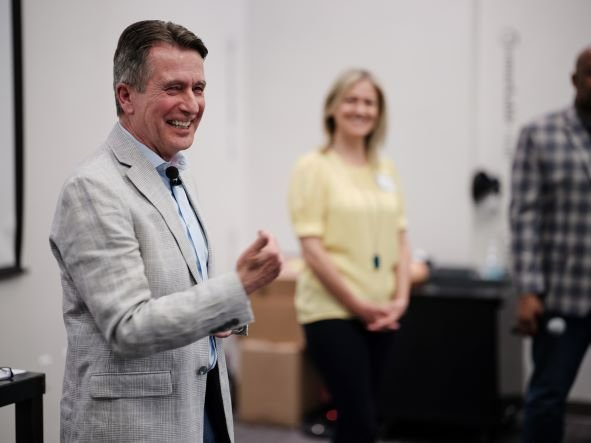
You heard it right here, folks. If you in any way see yourself in a position of responsibility, and I’m going to go as far as to even say on a personal level, I feel that this book is going to be very helpful for you. Go grab a copy because and draw a line to Reiner.
He’s on LinkedIn. Let him know what you thought of the book. I’m sure that he would love to know how it’s impacted you or even your family and the ecosystem that you live in, the community that you live in. Because these are the things that are most powerful right now, is the opportunity to hear back from people if what you’ve learned, what you’ve experienced in your life and with people that you’ve worked with, how far reaching through the accessibility of a book format, can the change actually be among people that you will never even hear from?
So this is a great opportunity, folks. When you pick up the book, go hit up Reiner on LinkedIn and let him know what you thought of it. Reiner I want to ask you this. As we get ready to close off the theme of today’s episode, let’s loop back around to it. I started off the top of this show with how to lead self, others and organizations through holistic leadership. So everyone wins. What do people need to know about that statement through everything that we just talked about?
Well, first of all, that anybody can learn to lead themselves. And it starts with themselves. It always has to start with themselves. I have taught leadership for four decades now. And if you cannot lead yourself, it’s very hard to lead others. I would say it’s impossible. So address yourself, but you have always to have some people that really support you.
“Anybody can learn to lead themselves. And it starts with themselves. It always has to start with themselves. I have taught leadership for four decades now. And if you cannot lead yourself, it’s very hard to lead others.” ~Reiner Lomb
Very often we have these heroes that created great companies or movements and so on, and they are put on a pedestal. But they could not have been successful without the support of all these people. Yes, from Gandhi to MLK to Mandela or Steve Jobs, etc.
So, you have to have the team of support of people you trust and that you coordinate effectively, collaborate together, and you have to have the support of those, but you also need to scale. I have examples in the book of the fall of the wall.
I grew up in Germany. And what kind of scale of change in behavior is required and how the emotional shift dictated that scaling behavior and how it created a peaceful revolution. Now we can have a peaceful revolution in the business world and we can have it in society as well.
Absolutely. You know, this brings me to a question I feel is probably one of the most important questions for me to ask you here. How can we accomplish this whole idea of everyone wins? You know, that’s the big thing here, right? That’s the big thing that your book is telling us. That’s the whole big thing of the theme of this show.
How can everyone win? Is it truly a connectivity between self to your immediate people that you’re responsible to and then to the scale component, which we’ve been talking about it as an organization, but it could also be a community that you live in? It could be even go as far as the community of the world that we live in. Talk to us a little bit. Any other revelations that you’ve had in that realm?
Oh, absolutely.
So many. I know that you have.
It was life changing for me. It’s the circle of empathy and compassion and interest going from life, from self when you’re very little to your immediate family and friends and community and company, you work for whatever. And then spreading out the world. That can come as a closing of consciousness and awareness. But it’s an emotional shift.
And I had this revelation maybe 20 years ago, maybe more, when I was on a business trip, negotiating large multimillion dollar deal and at night I was in the hotel room and I turn on the TV and a documentary from Africa came and we had two ethnic groups. One ethnic group was going through the other ethnic group and cutting the arms of every little child with a gun pointed to the head of the father. I was crying that moment.
And was fascinating emotionally with these fathers. I had a son at that time. Now I have two children and grandchild as well. But I was feeling what they were feeling or at least resonating with it. And suddenly my circle of empathy expanded tremendously. So other people have explained differently.
Some people, like astronauts, go to space and suddenly see the beautiful planet. And this is our common home. I have an example of this is the whole place. If you put two opposing people, they don’t like each other, maybe different ideology. And so they would not normally talk to each other, never collaborate. You put them on an island and they could only survive if they would talk to each other and collaborate together.
How interesting.
What they rather die or would they decide to collaborate with each other, to talk to each other and pitch to differences and maybe in that process develop empathy for each other and recognize the common humanity?
Has anyone done that? Do you know if anyone’s done that exercise?
I have not seen it that way.
That would be interesting, wouldn’t it?
Well, I think these reality shows are manipulating those experiments.
Yes.
Because to create a conflict rather than saying let’s just see what happens.
The other way round, aren’t they? But what a great reality show that would be. Rather than have people that have no issues with each other create conflict, which is what reality shows do is why we watch them. Right? I don’t but it’s why people watch them.
What if we do it the other way round, a reality show where people actually start at the point of conflict and then work towards union. That would be interesting. I would watch that one.
I think that is a wonderful experiment. There’s something similar that happened in the UK, a UK reality show. They did that and I don’t know how the starting point was if they were adversities or not, but they closed down the show because they could not create a conflict between the people.
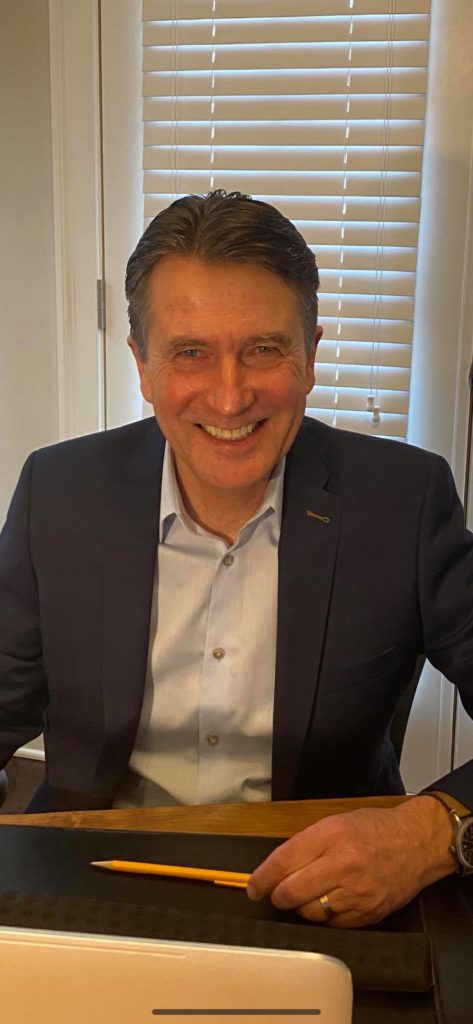
The people who are collaborating is too boring. People don’t want to watch that. They want to see people fight. And so very often they infuse conflict in these reality shows, which people personally would never want it themselves, because the nature of peoples is to work together and feel good.
I mean, we don’t feel good when we fight with each other unless we have some mental problems, right? But if we are healthy mentally and everything as a human being, we want to get along with each other. We feel better when we do.
Absolutely right. I want to close off by asking you this. Is there anything at all that you feel that we haven’t touched upon that you’d like to leave everyone with? When it comes to those people who don’t still quite understand the impact and the power of holistic leadership towards positive change?
That’s a very good question. I want to reinforce something. If you or any of your listeners are dissatisfied with something around you in the world, in your community, in your family, no matter where it is in society, you can make a difference.
You can create positive change by changing your behavior. The difference you make is the only question of scale. You might make a difference to one person. At least every person I know can make at least the difference to one person by changing their behavior. That’s the first.
The second I want to reemphasize is in order to create that change, you need to change behavior of others, starting with yourself. And the third thing I want to emphasize is you can achieve that and you will achieve that in empower yourself doing that.
If you become aware of your emotions and you learn how to shift to the emotions that most support the behavior you need in this moment to create that positive change. I want to emphasize that it sounds simple and complex at the same time, but it’s something you can continuously learn.
“If you become aware of your emotions and you learn how to shift to the emotions that most support the behavior you need in this moment to create that positive change.” ~Reiner Lomb
Just by learning a little bit, makes a difference in your life. I let people just pick one emotion initially that they can learn and they have not learned so much yet. Like somebody doesn’t trust or like a leader, is not optimistic, is pessimistic, and therefore cannot see a future that looks better. Like an aspirational vision, then needs to work on optimism. But that can be learned.
So I want to leave people with that, that this can be learned, emotions can be learned. And that affects your behavior greatly. And that leads to more holistic leadership, because you become more empathetic, you become more compassionate, you become more interested in people and in the solutions. You become a better visionary. You inspire people better. You’re going to create a better collaboration and you become more resilient.
Absolutely. All of the above. Thank you very much. Reiner, I have loved everything about our conversation. Thank you so much for bringing your wealth of wisdom and insights to the show for our community here to benefit from.
I really love your ideology and how you look at things truly from many different layers and how they all come together towards accomplishing the goal of truly holistic leadership where everyone wins. Thank you so much for coming on.
Thank you Raj. Thank you for having me.
Absolutely. Guys, cultivating a leadership centric life is one that can benefit all aspects of your life. Because I’ve learned over my lifetime that the nucleus to great relationships is in how you conduct yourself, how you lean into others, and how together you create community around your endeavors.
As Reiner states, leading self leads to leading others, which leads to leading successful organizations. I really hope that you got some real value from today’s show and will share it with everyone you know who you feel needs to get these learnings.
I also hope that you’ll subscribe to my YouTube channel and hit the notification button at The Open Chest Confidence Academy so that you never miss an episode which drops every Wednesday, as you guys know.
You can also download the ‘Transform Your Confidence Show’ on podcast platforms and give it a five-star rating guys, if you feel that it’s a valuable resource to assist in your journey to empower your confidence with actionable insights.
You can also read the podcast. As you guys all know, we have it on our blog at theopenchestconfidenceacademy.com/media/podcast.
And as always, guys, I’ll see you next week for another invaluable episode packed with insights and learnings to help empower your work, your life and your spirit. Take care of yourself, guys.


